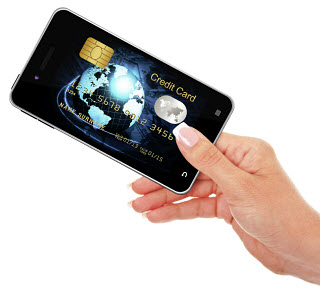EU regulators take action on the problems associated with mobile apps and their microtransactions
Mobile games are massively popular, but many of these games may be marketed under false pretenses that they are free. In the U.S., federal regulators are pushing for mobile platforms to curb the growing problem of young children making unauthorized purchases through mobile applications. In the European Union, regulators have begun following suit, taking steps to ensure that apps that feature microtransactions are no longer marketed as free and purchases made through these applications are appropriately authorized.
Microtransactions are leading to unauthorized in-app purchases
Microtransactions have become a very common aspect of the mobile app world. In mobile gaming, in-app purchases are one of the best ways for developers to generate revenue from their creations. In these games, players can often purchase upgrades or buy digital currency that can be used to unlock special content. Because mobile games are particularly popular among children and young adults, unauthorized purchases have become a problematic issue.
Games cannot be marketed as free if they also include microtransactions
 The EU Consumer Protection Cooperation Network has determined that games that are advertised as free cannot also have microtransactions. Google, Apple, and other providers of mobile games will have to remove such games from their store platforms in the European Union. Google has had a somewhat cavalier response to the ruling and has begun taking steps to weed out such games from its store platform, but Apple has been less inclined to accommodate the new rules.
The EU Consumer Protection Cooperation Network has determined that games that are advertised as free cannot also have microtransactions. Google, Apple, and other providers of mobile games will have to remove such games from their store platforms in the European Union. Google has had a somewhat cavalier response to the ruling and has begun taking steps to weed out such games from its store platform, but Apple has been less inclined to accommodate the new rules.
Issue has more to do with marketing rather than microtransactions themselves
The European Commission notes that Apple has yet to take any sufficient action on the matter. Apple has proposed its intention to address the issue of microtransactions, but has not yet made any effort to do so. These transactions are a major revenue stream for app stores, allowing these stores to generate profit for their parent company. Some argue that microtransactions are vital to the growth and survival of mobile games, but the issue is mostly about marketing and not about an application’s ability to generate profit.
Popular app files two trademarks that could dictate its future
Massively popular mobile photo-sharing application Snapchat may be looking to solidify its future as a relevant application by embracing mobile payments. The app has become widely popular among a large demographic, but its uses are somewhat limited. It exists as a photo and video-sharing platform, through which users can share snippets of their lives with those on their contact lists. Typically, the pictures and videos shared through the app have a very short lifespan, with some lasting only seconds before being lost forever.
Trademarks highlight mobile commerce services
Snapchat has filed two trademarks that highlight its interest in the field of mobile commerce. The trademarks suggest that the company is interested in accepting, processing, and transferring payments among its users. One of the trademarks refers to computer application software that is responsible for handling electronic payments. The trademark suggests that this software can be downloaded from a global network, allowing it to be accessed by potentially millions of users. The second trademark filed by Snapchat involves the electronic transfer of money to others. This would involve the transfer of funds from various sources, including mobile devices.
Snapchat may be able to find enduring success by engaging in mobile commerce
 Snapchat has not yet revealed how it intends to implement these new trademarks, but a focus on mobile commerce could help the company establish lasting relevance among its users. Snapchat is not the first photo-sharing application and it will not be the last. Many of its predecessors have faded into obscurity because they had little in the way of versatility. Apps that offer more than just a single, relatively simple feature have the potential to remain relevant among consumers that are generally quite fickle about the apps that they use.
Snapchat has not yet revealed how it intends to implement these new trademarks, but a focus on mobile commerce could help the company establish lasting relevance among its users. Snapchat is not the first photo-sharing application and it will not be the last. Many of its predecessors have faded into obscurity because they had little in the way of versatility. Apps that offer more than just a single, relatively simple feature have the potential to remain relevant among consumers that are generally quite fickle about the apps that they use.
Snapchat has limited experience in mobile payments
The demand for mobile commerce is on the rise. Consumers want to make use of new services that allow them to manage, transfer, and use their funds at their discretion. Snapchat may not have extensive experience with mobile commerce, but it does have access to a massive consumer base that may respond well to whatever efforts it ends up making in the mobile payments field.
 The EU Consumer Protection Cooperation Network has determined that games that are advertised as free cannot also have microtransactions. Google, Apple, and other providers of mobile games will have to remove such games from their store platforms in the European Union. Google has had a somewhat cavalier response to the ruling and has begun taking steps to weed out such games from its store platform, but Apple has been less inclined to accommodate the new rules.
The EU Consumer Protection Cooperation Network has determined that games that are advertised as free cannot also have microtransactions. Google, Apple, and other providers of mobile games will have to remove such games from their store platforms in the European Union. Google has had a somewhat cavalier response to the ruling and has begun taking steps to weed out such games from its store platform, but Apple has been less inclined to accommodate the new rules.
 Snapchat has not yet revealed how it intends to implement these new trademarks, but a focus on
Snapchat has not yet revealed how it intends to implement these new trademarks, but a focus on 